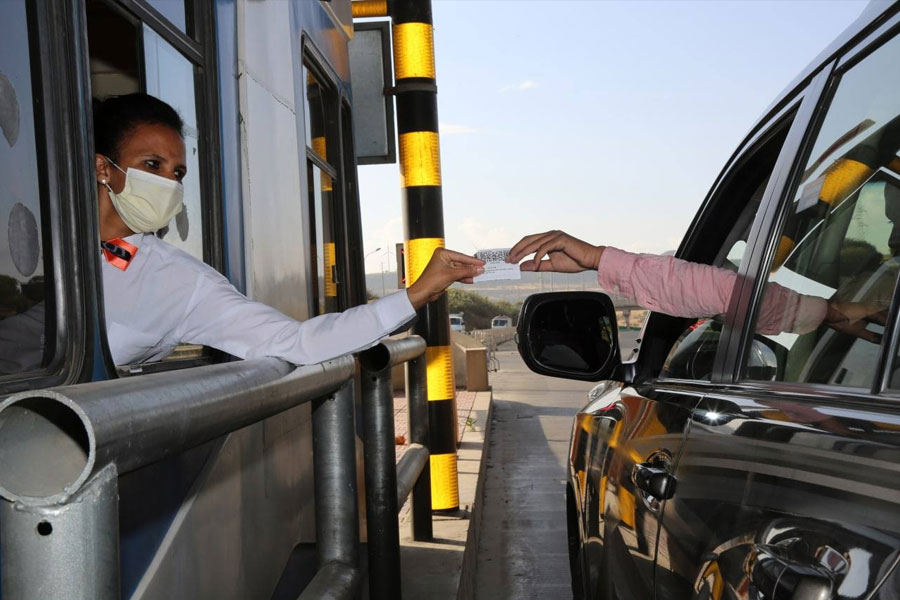
Sponsored Contents | Apr 04,2022
Mar 21 , 2020
By Eden Sahle ( Eden Sahle is founder and CEO of Yada Technology Plc. She has studied law with a focus on international economic law. She can be reached at edensah2000@gmail.com. )
Any kind of discussion these days tends to devolve into the Novel Coronavirus (COVID-19) outbreak, especially after a number of people in Ethiopia tested positive.
The case was no different when I met a group of young people two weeks ago for work reasons. Although it was my first time meeting them, I greeted them from a distance and sat next to them at the same round table. They joked around with the way I greeted them and continued telling me that, as a young person, I am immune to the virus.
The young people are working in different high-level positions, including as lecturers at Addis Abeba University (AAU). The more I listened to them the more dazed I became at how misinformed they were.
These men and women started speaking about how we young people are immune from COVID-19 and that it is the illness of senior citizens. Their delusion did not stop there. They said resources needed to be left for young people as senior citizens have lived their lives and used ample resources already.
I was terrified of their poor understanding of what the disease actually represents and its consequences to our socioeconomic situation. Several minutes into our debate, these people, who consider themselves well-educated, immune from the virus and solely entitled to the resources of the country, began to suggest possible cures. Despite successive insistence to the contrary, they believed that garlic, onion and traditional plant-based supplements are defence mechanisms against the virus.
Unfortunately, the young people I recently met are not alone. Even with educated people, rumours and superstitions hold sway. Although they have key, influential positions in society, they seem to struggle to acquire the skills needed for the positions they hold. They have memorised enough details to help qualify them for a certain job, but they have kept themselves free of logic and reason.
It takes moral and upstanding citizens to assume responsibility. As part of the public, young people should instead strive to make informed, rational decisions on a daily basis without feeling overly entitled to everything.
Anyone can make mistakes that are just part of life. It is only human nature to sometimes snap, say incorrect things and insist on being right. Lack of self-reformation is dangerous. Every new bad habit or repetition of something outdated that we allow becomes harder to change the longer we are willing to ignore it.
When we are led by our illusions and selfishness, it is inevitable that we find ourselves in situations we could have easily avoided if we considered others with the same high regard we bestow upon ourselves.
Self-discipline is linked with educational, occupational and social discipline. It is among the most important qualities that can contribute to a person’s achievement in all measures.
The blame does not lie entirely on the individual's mindset only. Failing to equip educated people with the necessary skills has been one of the most damaging failures of our institutions. Unless we work to change this attitude, we will not be able to harvest the economic dividends from a youthful population.
Breaking our sense of entitlement and building new and constructive habits requires us to treat others the way we want to be treated. Discipline and respect for human dignity is a prerequisite for a progressive society. We need to create a foundational set of good habits that can help us respect and understand people of all ages, across the political and religious aisles. It is only then that we will be able to change society from the ground up.
It is impossible to ignore the dismaying socio-cultural changes currently taking place in Ethiopia, where people are ignoring the importance of regard and care to others.
Building a developing country requires mentoring people to have skills, compassion and care for others. People of all ages should be encouraged to find a broader purpose for their lives and their contribution and responsibilities toward others. They should be involved in socially beneficial activities that might help them identify their skills and where they can best be utilised in the service of others. It is only then that we can aspire to create a progressive state.
PUBLISHED ON
Mar 21,2020 [ VOL
20 , NO
1038]

Sponsored Contents | Apr 04,2022

Fortune News | Jan 13,2024

Fortune News | Mar 18,2023

Viewpoints | Dec 25,2021

Radar | Jun 15,2024

My Opinion | Jun 29,2019

Fortune News | Nov 12,2022

Sunday with Eden | Sep 30,2023

Radar | Mar 19,2022

Sunday with Eden | Jun 20,2020

Dec 22 , 2024 . By TIZITA SHEWAFERAW
Charged with transforming colossal state-owned enterprises into modern and competitiv...

Aug 18 , 2024 . By AKSAH ITALO
Although predictable Yonas Zerihun's job in the ride-hailing service is not immune to...

Jul 28 , 2024 . By TIZITA SHEWAFERAW
Unhabitual, perhaps too many, Samuel Gebreyohannes, 38, used to occasionally enjoy a couple of beers at breakfast. However, he recently swit...

Jul 13 , 2024 . By AKSAH ITALO
Investors who rely on tractors, trucks, and field vehicles for commuting, transporting commodities, and f...

Jun 28 , 2025
Meseret Damtie, the assertive auditor general, has never been shy about naming names...

Jun 21 , 2025
A well-worn adage says, “Budget is not destiny, but it is direction.” Examining t...

Jun 14 , 2025
Yet again, the Horn of Africa is bracing for trouble. A region already frayed by wars...

Jun 7 , 2025
Few promises shine brighter in Addis Abeba than the pledge of a roof for every family...